Skin Allergy
Home » Conditions » Skin Allergy
Get Back Your Confidence
Not sure about your condition? Get in touch now, there is no reason for you to wait.
Award winning dermatology service, with over 20 years of experience
Short waiting lists, on some occasions offering same week appointments
Safe environment, in Care Quality Commission approved facilities
Skin Allergies
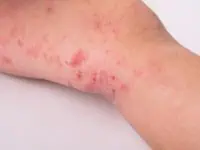
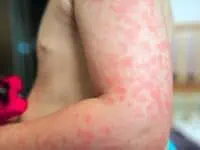
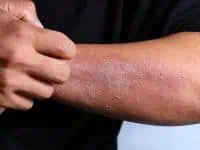

SKIN ALLERGY SYMPTOMS
Indicators of skin allergies can vary but typically include:
- Red and inflamed skin: The affected area may show redness and signs of inflammation.
- Constant itching: There may be a persistent urge to itch the affected area.
- Skin swelling: Puffiness and swelling can occur.
- Development of blisters: Fluid-filled blisters may form on the skin.
- Appearance of rash: Visible rashes, often appearing as tiny bumps or welts, may develop.
- Dryness and cracking of skin: The skin might become dry, flaky and may even crack.
- Burning or stinging sensation: Some individuals may feel a stinging or burning sensation in the affected area.
These symptoms can appear shortly after exposure to the allergen or may take a few days to manifest.
CAUSES OF SKIN ALLERGIES
Skin allergies occur when the skin reacts to certain substances. Common causes include:
- Metals: Nickel, found in jewelry, belts and zippers, is a common allergen.
- Fragrances: Perfumes and scented products can trigger allergic reactions.
- Preservatives: Chemicals used to preserve cosmetics, lotions and other personal care products.
- Rubber: Latex and other rubber products, including gloves and balloons.
- Plants: Certain plants, such as poison ivy, poison oak and poison sumac, can cause allergic reactions.
- Dyes: Dyes used in clothing, hair products and cosmetics.
- Medications: Topical medications, such as antibiotic ointments, can cause skin allergies.
- Cleaning Products: Detergents, soaps and household cleaners may contain allergens.
- Cosmetics: Makeup, lotions and skincare products can contain ingredients that cause allergies.
- Industrial Chemicals: Substances used in manufacturing or construction can be allergens.
Identifying and avoiding the specific allergen is crucial for managing and preventing skin allergy symptoms.
HOW LONG DOES A SKIN ALLERGY LAST?
PATCH TESTING FOR SKIN ALLERGY
Patch testing stands as a powerful tool in the diagnosis of skin allergies. It works by detecting precise substances that prompt allergic reactions. Small doses of possible allergens are applied to the skin, with the subsequent reaction observed over several days. This method allows healthcare experts to determine the specific cause of dermatitis or other allergic reactions. With this detailed information, personalised care plans can be crafted, enabling patients to more effectively avoid allergens and manage their symptoms. Patch testing is a non-invasive procedure that boasts high accuracy, making it a dependable technique for enhancing the lives of individuals suffering from constant skin allergies.
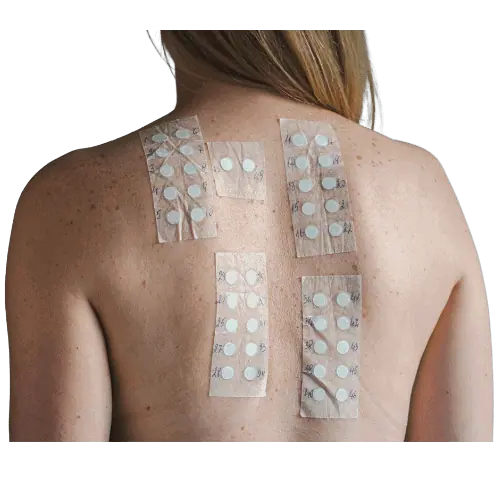
FREQUENTLY ASKED QUESTIONS
HOW CAN SKIN ALLERGIES BE TREATED?
WHY AM I GETTING SKIN ALLERGIES ALL OF A SUDDEN?
HEAR FROM OUR PATIENTS
WHY TREAT YOUR SKIN ALLERGIES AT THE Harley Street DERMATOLOGY CLINIC?
The Harley Street Dermatology Clinic specialises in conditions affecting the skin, hair and nails. Our goal is to provide all the care that you need when you’re experiencing these kinds of problems. We want to make it easy for you to access the best quality hair loss treatment in London.
Our hair loss clinic in London is conveniently located in Central London, so it’s easy to visit us if you need to see a dermatologist. You will find yourself in a very comfortable and welcoming environment. We have created a relaxing space where you will receive the highest quality of care. We are regulated by the Care Quality Commission, are part of the British Association of Dermatologists and are top rated by patients of Doctify so you can be sure of safe and effective treatment with us.
latest INSIGHTS AND ADVICE

Combat Common Autumn Skin Conditions for Healthier Skin
Autumn is a time when the world transforms. Leaves turn brilliant shades of red and gold, temperatures drop and the air becomes crisp. While this season offers a picturesque backdrop, it also presents unique challenges for our skin. For skincare lovers and beauty enthusiasts, adapting

Eczema Awareness Month – A Guide to Understanding and Managing Your Skin
Eczema Awareness Month is a dedicated time to shine a light on a condition that affects millions worldwide. If you’re one of the many eczema sufferers, you’re likely familiar with the challenges of managing this skin condition. October aims to educate, support and empower those
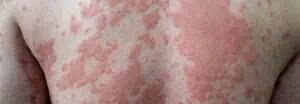
Psoriasis Awareness Month: Awareness, Treatments and Support
Understanding Psoriasis Awareness Month Every year, Psoriasis Awareness Month is celebrated in August. It’s a time dedicated to educating people about psoriasis, a chronic skin condition that affects millions worldwide. This awareness campaign aims to reduce the stigma associated with psoriasis, encourage early detection and








